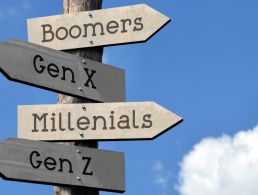With some workers being asked to self-isolate or work remotely, we asked the employment and benefits team at William Fry about sick pay and leave entitlements.
Self-isolation is potentially on the cards for many employees given the current precautions around coronavirus.
But with people being advised to self-isolate for two weeks if they have potentially been exposed to the virus, what does that mean for pay entitlements? We spoke to William Fry’s employments and benefits team to learn more.
The overarching point to note, first of all, is that Irish law doesn’t provide a standard sick pay policy. This means that it’s up to your employer to decide what your sick pay entitlement is – whether it’s coronavirus-related or not.
However, some might be entitled to benefits from the Department of Social Protection and, in light of the concept of self-isolation, the Government has announced plans to bring in emergency legislation that will look at sick pay for workers asked to self-isolate.
The legislation is still being discussed and will be brought to the Dáil next week, but any resulting benefits will only be available to those who have been medically certified to self-isolate.
William Fry said: “No draft text has been provided, but we understand that the illness benefit will be available immediately – rather than waiting for the usual six-day lead in of medically certified leave – and will be increased from €203 to €305 per week for up to two weeks of medically certified self-isolation or for the duration of an individual’s medically certified absence from work due to Covid-19.
“In addition, self-employed people will be entitled to either the illness benefit or the non-means tested Supplementary Welfare Allowance once the emergency legislation is enacted.”
What can you say to your employer?
As sick pay entitlements are at the discretion of your employer, it’s a good idea to speak to them if you are concerned. As William Fry pointed out, the sick pay situation around coronavirus is “still evolving” and, as a result, employer approaches to sick pay are still under review.
“Many employers are taking a proactive approach, putting in place comprehensive contingency plans after completing a risk assessment,” William Fry said.
“Depending on the nature of the business involved, there may be a more immediate need to consider mandatory self-isolation of staff, for example where the business has numerous employees who travel frequently.”
Working from home
Self-isolating employees who are not sick and can continue to carry out their duties remotely are entitled to normal pay.
But, William Fry noted, it becomes more complicated when people are not in a position to work remotely, whether that’s because of complex systems, a lack of connectivity or the nature of the role, among other factors.
“It is a more difficult scenario where the employee is not set up to work remotely and cannot therefore be said to be working from home and entitled to continued salary,” the William Fry team said.
“This has become a significant issue for employers who, as a precautionary measure, may ask staff returning from holidays in an infected area to voluntarily self-isolate at home for two weeks before returning to the workplace. This feeds into an employer’s statutory and common law duty to provide a safe place of work for staff and to take protective and preventative measures.”
What should employers do?
According to William Fry, there are a number of scenarios that employers need to be mindful of during this time.
If faced with non-infected employees who are eager to come into work so as not to miss out on pay, for example, companies could face a payment of wages claim if they prevent staff from working. To mitigate such risks, William Fry advised taking “a prudent approach” and paying staff throughout two-week isolation periods even if they cannot work from home.
“Of course, this may not be feasible for many employers, and it is this situation that has been the catalyst for the government’s emergency legislation,” said William Fry.
Where an employee is self-isolated and subsequently becomes sick, this is when official sick leave – and any associated sick pay entitlements – kick in.
Overall, William Fry has advised employers to be “proactive rather than reactive” – to stay well-informed as the coronavirus situation develops and to update contingency plans, including approaches to sick pay, under weekly, or even daily, review.
“An employer’s approach to self-isolation – and pay – should be in line with the public health objectives and take into account the Government’s emergency measures regarding illness benefit.
“Any decision by an employer not to pay during a period of self-isolation where the employee cannot work from home should be clearly set out in a comprehensive policy document and the employee made aware of this possibility in advance of booking annual leave to affected areas.”
Other contingency plans
William Fry also emphasised the importance of adopting “a reasonable and measured approach addressing employee concerns over pay in a number of scenarios”, including parents who need to stay at home if Irish schools are asked to close or workers who cannot travel to the office if public transport has to shut down.
“There are many challenges for employers unfolding as the situation progresses,” it said. “The risk that this could be a medium to long-term situation – unlike the very short-term situation that previous snow storms presented, for example – means that considered and non-alarmist but forward-thinking is required.”
William Fry recommends visiting the WHO, HSE or Department of Foreign Affairs websites for further information.




